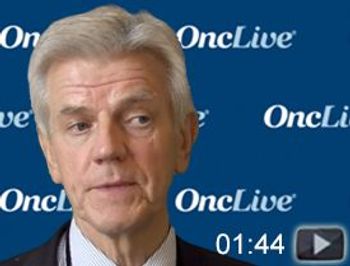
John Sweetenham, MD, associate director for clinical affairs, Harold G. Simmons Comprehensive Cancer Center, UT Southwestern Medical Center, discusses unanswered questions with CAR T-cell therapy in pediatric acute lymphoblastic leukemia.

John Sweetenham, MD, associate director for clinical affairs, Harold G. Simmons Comprehensive Cancer Center, UT Southwestern Medical Center, discusses unanswered questions with CAR T-cell therapy in pediatric acute lymphoblastic leukemia.
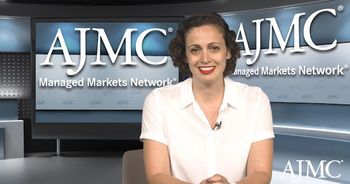
This week, the top managed care news included the FDA's approval of a $2.1 million gene therapy; a study revealing that the worldwide need for palliative care will nearly double by 2060; the FDA granting priority review to Amarin’s Vascepa for a cardiovascular indication.
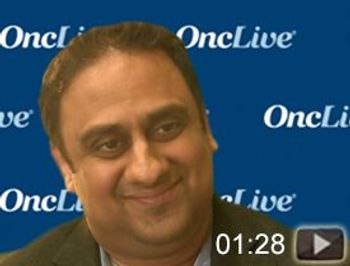
Nirav N. Shah, MD, assistant professor, Medical College of Wisconsin, discusses the differences between anti–CD19 CAR T-cell therapies.
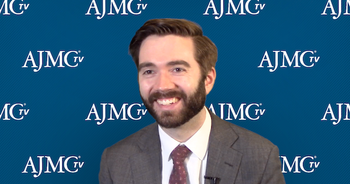
Therapies for rare diseases, such as gene therapy, pose very unique challenges to value assessments in a variety of different ways, explained Paul Melmeyer, director of Federal Policy, National Organization for Rare Disorders.
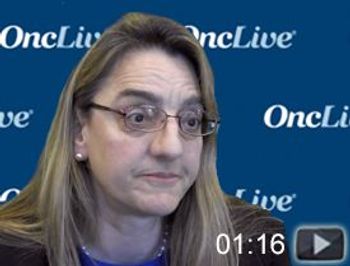
Funda Meric-Bernstam, MD, chair, Department of Investigational Cancer Therapeutics, medical director, Institute for Personalized Cancer Therapy, professor of medicine, The University of Texas MD Anderson Cancer Center, discussed preliminary data with a novel combination in the treatment of patients with renal cell carcinoma.
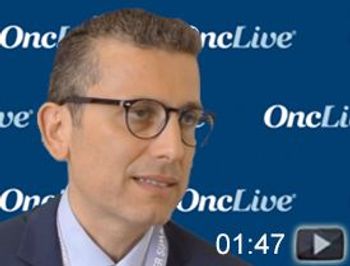
Giuseppe L. Banna, MD, consultant, Medical Oncology, Cannizzaro Hospital, discusses the potential for CAR T-cell therapy in the treatment of patients with lung cancer.
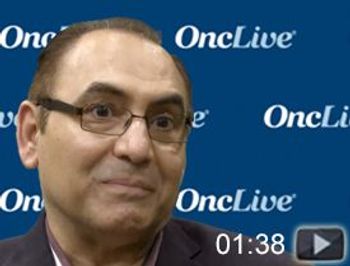
Ahmed Galal, MD, instructor, Department of Medicine, Duke Cancer Institute, discusses the use of CAR T-cell therapy in patients with relapsed/refractory lymphomas.
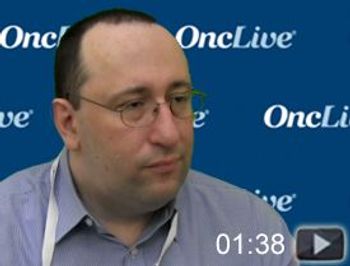
Lazaros John Lekakis, MD, associate professor of clinical medicine, Sylvester Comprehensive Cancer Center, University of Miami, discusses managing the toxicity of CAR T-cell therapy.
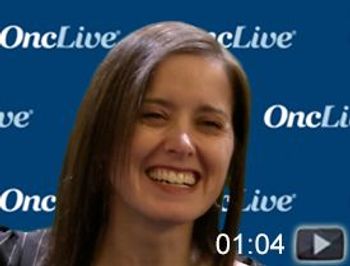
Christine N. Duncan, MD, a senior physician at Dana-Farber Cancer Institute, and assistant professor of pediatrics, Harvard Medical School, discusses the expansion of CAR T-cell therapy in oncology.
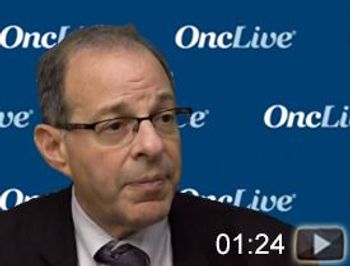
Mario Sznol, MD, professor of medicine, co-director, Yale SPORE in Skin Cancer, Yale Cancer Center, discusses patient selection for combination therapy in metastatic renal cell carcinoma.
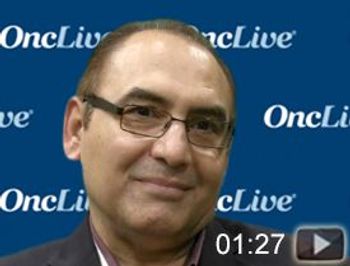
Ahmed Galal, MD, instructor, Department of Medicine, Duke Cancer Institute, discusses ways of extending the reach of CAR T-cell therapy in real-world practice.
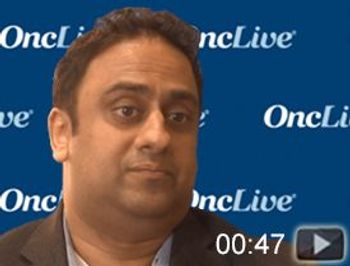
Nirav N. Shah, MD, assistant professor, Medical College of Wisconsin, discusses ongoing research with CAR T-cell therapy.
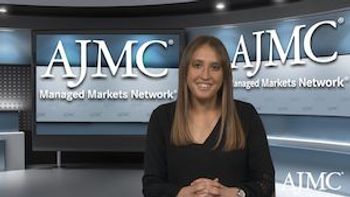
This week, the top managed care news included HHS announcing 5 new primary care payment models; a judge blocking a "gag rule" for Title X; CMS reopening the rule for chimeric antigen receptor T-cell therapy add-on payments.
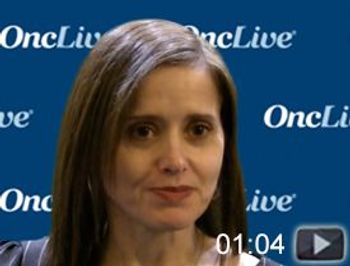
Christine N. Duncan, MD, senior physician, Dana-Farber Cancer Institute, assistant professor of pediatrics, Harvard Medical School, discusses the use of CAR T-cell therapy in the treatment of pediatric patients with acute lymphocytic leukemia (ALL).
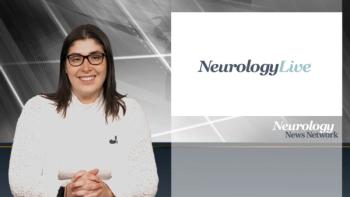
Neurology News Network for the week of April 13, 2019.
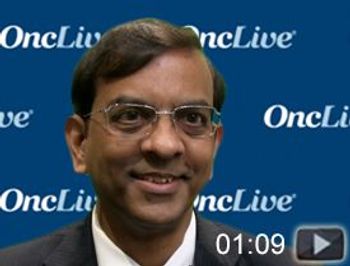
Prasad S. Adusumilli, MD, surgeon, deputy chief of Thoracic Service, co-director of the Mesothelioma Program, head of Solid Tumors Cell Therapy, Cellular Therapeutics Center, at Memorial Sloan Kettering Cancer Center, discusses the rationale for an autologous mesothelin-targeted CAR T-cell therapy in advanced solid tumors.
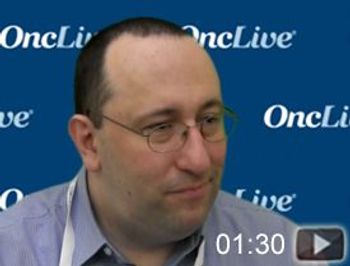
Lazaros John Lekakis, MD, associate professor of clinical medicine, Sylvester Comprehensive Cancer Center, University of Miami Health System, discusses real-world data with CAR T-cell therapy from the 2018 ASH Annual Meeting.
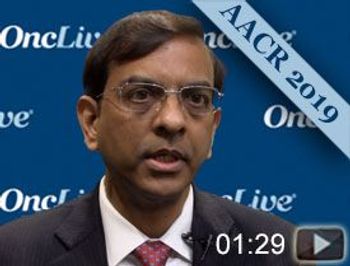
Prasad S. Adusumilli, MD, surgeon, deputy chief of Thoracic Service, co-director of the Mesothelioma Program, head of Solid Tumors Cell Therapy, Cellular Therapeutics Center, at Memorial Sloan Kettering Cancer Center, discussed the results of a phase I study exploring mesothelin-targeted CAR T-cell therapy in patients with advanced solid tumors during the 2019 AACR Annual Meeting.

Gene therapy provides an opportunity for every patient to become not a patient, to become an individual, and you can’t put a cost on that, explained Sophie Schmitz, BA, MA, managing partner, Partners4Access.
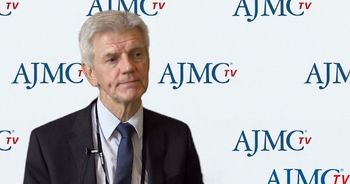
CMS’ proposal that patients be enrolled in a clinical trial or registry to get Medicare coverage for chimeric antigen receptor (CAR) T-cell therapies will help improve access, for the most part, but there is the risk that some organizations will choose not to offer this treatment, said John W. Sweetenham, MD, of Huntsman Cancer Institute at the University of Utah.
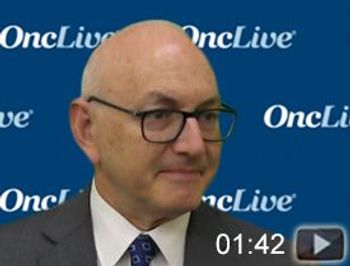
Stephen D. Nimer, MD, professor of medicine, director, Sylvester Comprehensive Cancer Center, University of Miami Health System, discusses the use of chimeric antigen receptor (CAR) T-cell therapy in hematologic malignancies.
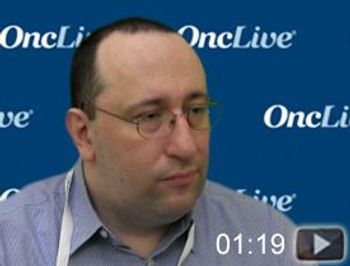
Lazaros John Lekakis, MD, associate professor of clinical medicine, Sylvester Comprehensive Cancer Center, University of Miami, discusses current research with chimeric antigen receptor (CAR) T-cell therapy across hematologic malignancies.
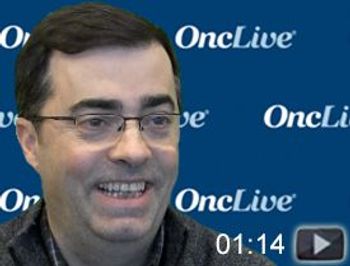
David F. McDermott, MD, director of the Biologic Therapy Program at Beth Israel Deaconess Medical Center, discusses single-agent versus combination immunotherapy in the treatment of patients with renal cell carcinoma.
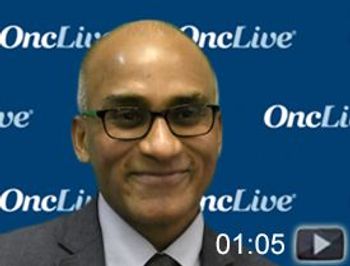
Suman Kambhampati, MD, co-medical director, Blood Cancer Program, Sarah Cannon Research Institute, discusses the potential of chimeric antigen receptor (CAR) T-cell therapy in chronic lymphocytic leukemia (CLL).
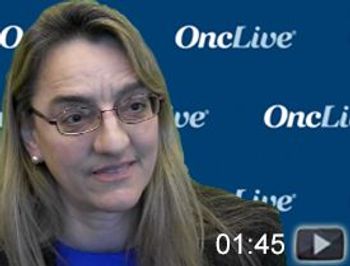
Funda Meric-Bernstam, MD, chair, Department of Investigational Cancer Therapeutics, medical director, Institute for Personalized Cancer Therapy, professor of medicine, The University of Texas MD Anderson Cancer Center, discusses the combination of CB-839 plus cabozantinib in patients with renal cell carcinoma.
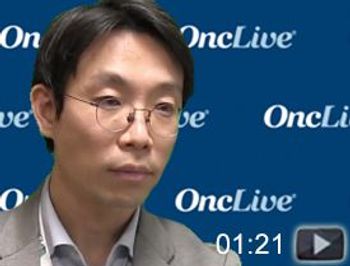
Jae H. Park, MD, attending physician, Leukemia Service and Cellular Therapeutics Center, Memorial Sloan Kettering Cancer Center, discusses the use of CAR T cells in the treatment of patients with acute lymphoblastic leukemia.
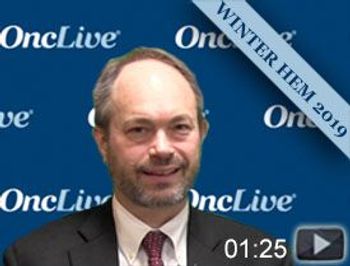
William G. Wierda, MD, PhD, discusses how CAR T cells could become more effective in the treatment of patients with chronic lymphocytic leukemia.
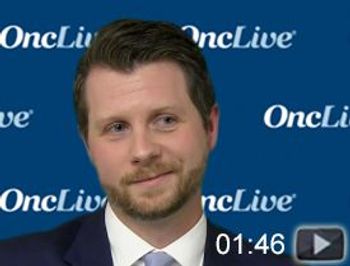
Michael D. Mix, MD, assistant professor of radiation oncology at Upstate University Hospital, discusses the use of local consolidative therapy in patients with oligometastatic non–small cell lung cancer (NSCLC).
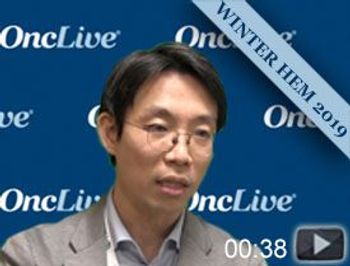
Jae H. Park, MD, discusses a particular challenge he sees in using CAR T-cell therapies in patients with acute myeloid leukemia.
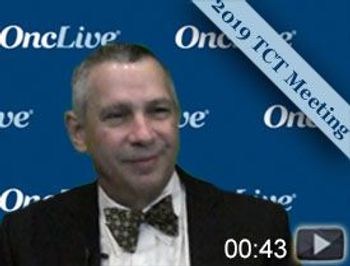
Sergio A. Giralt, MD, discusses the role of allogeneic hematopoietic cell therapy in patients with multiple myeloma.